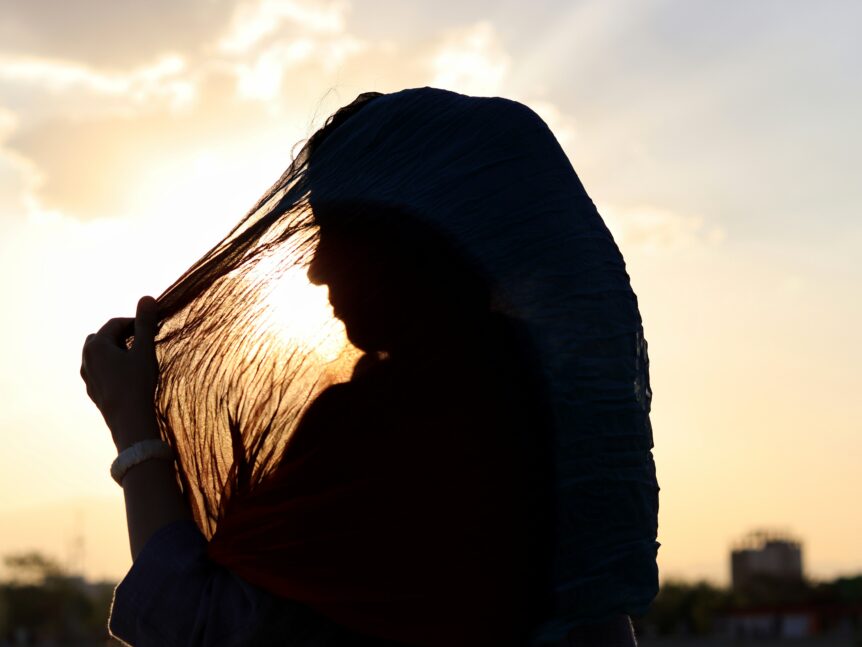
Mahwish Zahid, “To The People Who Looked Away”
Dear people who looked away,
When you saw me leaving the mosque, covered from head to toe, you looked away from me as if I was someone to fear. As if the scarf over my head was an indication of how dangerous I am. In that moment, I felt my world stop as I looked around and noticed how no one would look at me directly, choosing to stare at the dirty ground or cloudy sky, instead. My hand rose to pull my scarf down once I turned the corner, and it was as if I had stepped into a new whole world. The children playing in their yards didn’t run inside, nor did the parents narrow their eyes as they stood watch by the doorway of their homes. Each of my steps didn’t cause their heart rates to pick up just a little bit. As I sat in the car, I couldn’t stop the way my hands shook as I held my simple, black scarf in hand. I didn’t understand how a cloth could change the way I was able to walk in public.
I didn’t understand, at first, how not to change after experiencing this every time I stepped out of the mosque. However, after reading Citizen: An American Lyric by Claudia Rankine, I understood what I would have to do. If I wanted to be able to survive in this world and still keep my ideals, my values close to myself… If I wanted to keep my identity, I could,”not absorb the world” (Rankine 52). I had to make sure that every instance, every moment where I was looked at as if I didn’t belong wasn’t real. Those people looking away, pulling their children in close weren’t reacting to me. No! No, they were reacting to the idea of me. Their reactions weren’t an indication of who I was, just who I looked like. Unfortunately, no amount of justifying or explaining can curb that initial moment of pain, hurt, and fear I feel when I rush to pull my scarf off my head. I wish to forget. I wish to forget the looks and the steps of people as they conjure up all sorts of lies in their heads. However, I can’t forget. Instead, I remember as “not everything remembered is useful but it all comes from the world to be stored in you” (Rankine 58).
Now, instead of waiting until I get to the corner, I pull the scarf off the minute I cross the boundary of the mosque. Once I step foot onto the sidewalk, I no longer am safeguarded by the people who look like me and have to, once again, become like everyone else. Luckily, slowly and carefully, I learn to ignore the looks and the sharp intakes of breath. I stop waiting to cross the boundary or the corner of the street. I walk with my head held high, regardless of how my heart rate quickens as certain people pull away while others stand up straighter.
Regards,
Mahwish Zahid